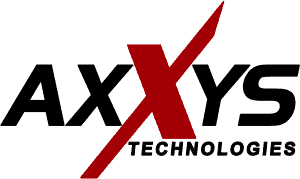As you may have heard, the cloud is a network of remote servers hosted on the Internet. But for businesses the world over, the cloud represents the next step in technological evolution. The cloud unlocks speed, flexibility, scale, and cost savings that businesses of all sizes previously only dreamed of. With cloud technology, an organization can access automations, connect workflows, and improve security. A business can store digital files and use new applications to foster growth and improve customer satisfaction. For small and growing businesses in particular, using the cloud is a great way to save costs while increasing productivity. In this post, we will explore how small and growing businesses are taking advantage of cloud technology to gain a competitive edge in the market.
Cloud Use Cases for Small and Growing Businesses
SaaS
Software-as-a-Service (SaaS) is a type of cloud computing model in which a software application is hosted by a third-party provider. This solution is then made available to customers over the internet and the provider actively manages it. Every user gets access to the same software application without having to install it on their own equipment. The pricing model is usually subscription based, meaning that businesses can add or remove licenses as needed. Below are some popular use cases of how a business uses Software-as-a-Service.
Bookkeeping and Billing
With cloud technology, small business owners are enabled to streamline their bookkeeping processes. Tracking down money is a big part of any business and is not a simple process. Cloud-based services offer secure, automated solutions for accounting, invoicing, payments processing, and more. This solution makes it easier to track customer invoicing information and monitor cash flow, all while maintaining accurate financial records that can even integrate with other services. Often, the product is also very simple to use. Even if you aren’t an expert in finance, the software can take care of much of bookkeeping needs. Additionally, the overall costs associated with these systems are much lower than hiring employees. The affordability and simplicity make such a tool an appealing choice for small businesses.
Customer relationship management (CRM)
A cloud-based CRM solution provides businesses with a centralized way to manage and track customer relationships. The biggest benefit of this technology is the ability to streamline the entire customer lifecycle. Long ago, marketing activities would be recorded to create leads and associate campaign information. Sales reps then tracked sales opportunities, sent out contracts, and stored customer details in disparate spreadsheets or handwritten files.
In a cloud-based CRM, all customer interaction securely lives on the web and grants remote access as well. For reps who travel to offsite locations, this ability to pull up customer information can be very handy. The customer support team benefits from getting insight into every conversation with the customer. When used correctly, a cloud-based CRM allows a business to follow the customer’s journey to personalize and improve the overall customer experience.
Collaboration and productivity
Utilizing SaaS products can be the key to improving collaboration and productivity. The cloud nature of these services allows teams to access data, systems, and applications at any given time. This encourages internal collaboration via shared documents, improved communication tools, and instant feedback. Furthermore, many productivity solutions also offer external collaboration with flexible security options.
With a SaaS setup, decision-makers have the ability to better monitor projects and optimize resources for better results. This has been especially beneficial with the rise of remote work. Thanks to these tools, managers can hire team members overseas without sacrificing efficiency. Lastly, integrations between different SaaS products can automate manual tasks and create a coherent workflow to boost productivity.
Communication
Today we have tools like Slack and Zoom dedicated to business communication on the web. SaaS products are already popular options as businesses strive to facilitate better conversations.
SaaS tools allow employees to search and browse previous messages or files shared with other employees. Setting up regular video conferences and online meetings have become a norm as well. They can all be recorded to the cloud server as well, so that anyone can watch a recording if they missed it.
Popular communication tools like Slack and Microsoft Teams are often integrated with other applications to make the digital workspace feel like a real office. For example, HR can automate announcements, or a new closed deal can be celebrated without being unrecognized.
Disaster recovery
Cloud services can be an asset for small and medium businesses to protect operating systems and associated data. It’s not uncommon to see an entire server get lost due to a fire or a flood because traditional servers live as hardware. In today’s world, disaster recovery is a challenging but increasingly important part of every business.
With advanced cloud backups, digital assets can automatically be backed up to ensure safekeeping in the event of a disaster. Additionally, cloud-based resources allow for quick restoration by enabling IT personnel to recover data in much shorter time frames. With cloud-based Disaster Recovery, SMBs have a reliable contingency plan for disaster management.
Telephony
For small and medium-sized businesses that require telephony, transitioning to a cloud service is an appealing option. With a cloud-based phone system, businesses can save on expenses since they do not need costly hardware to maintain operations.
Businesses that change locations or add employees can do so with a few clicks when using a cloud-based telephony system. Long gone are the days of needing a technician from the phone company to swing by the office to set up a new line. Remote team members can have the exact same call technology as in-office employees, leading to a unified call management experience for everyone.
Unlock Business Potential with a Move to the Cloud
The move to the cloud has become increasingly popular in recent years for businesses and for good reason. Cloud-based infrastructure and applications offer a wealth of benefits that can help unlock the full potential of any organization.
As you can see from the above business cases, there are three major benefits to migrating to the cloud. One of the key benefits of the cloud is its ability to create flexibility and mobility. With cloud-based solutions, employees can access their work from anywhere, at any time, using any device with an internet connection. Second, the cloud provides accessibility to data and information. With cloud-based solutions, businesses can access and store data in the cloud, making it easier to share and collaborate on projects.
Finally, the cloud provides enhanced security for both the business and employees. This reduces the risk of data breaches and helps protect sensitive information from theft or unauthorized access.
If you are interested in moving to the cloud, the expert support services at Axxys Technologies can help you get the most out of your cloud infrastructure. We also offer services in managed security, meaning our best practice will ensure a secure experience. If you need assistance getting started with setting up your cloud-based system or want to learn more about these features, contact our team today!








